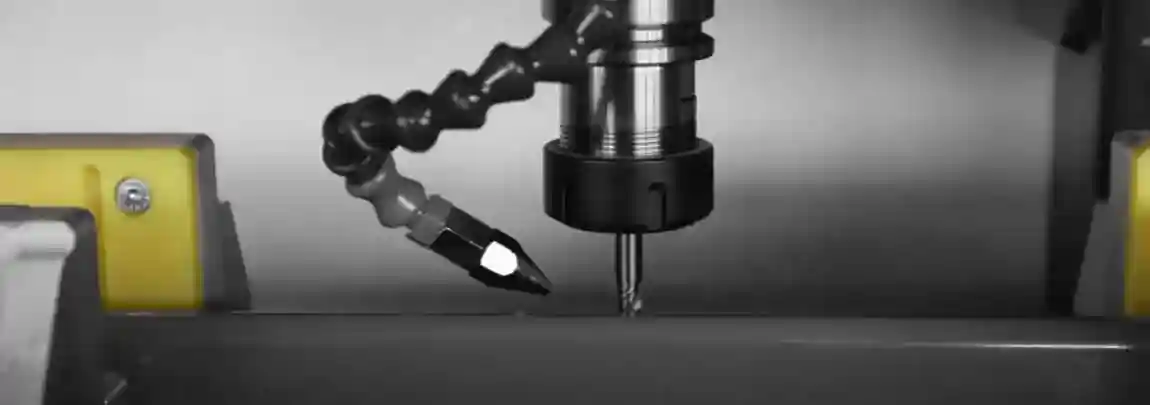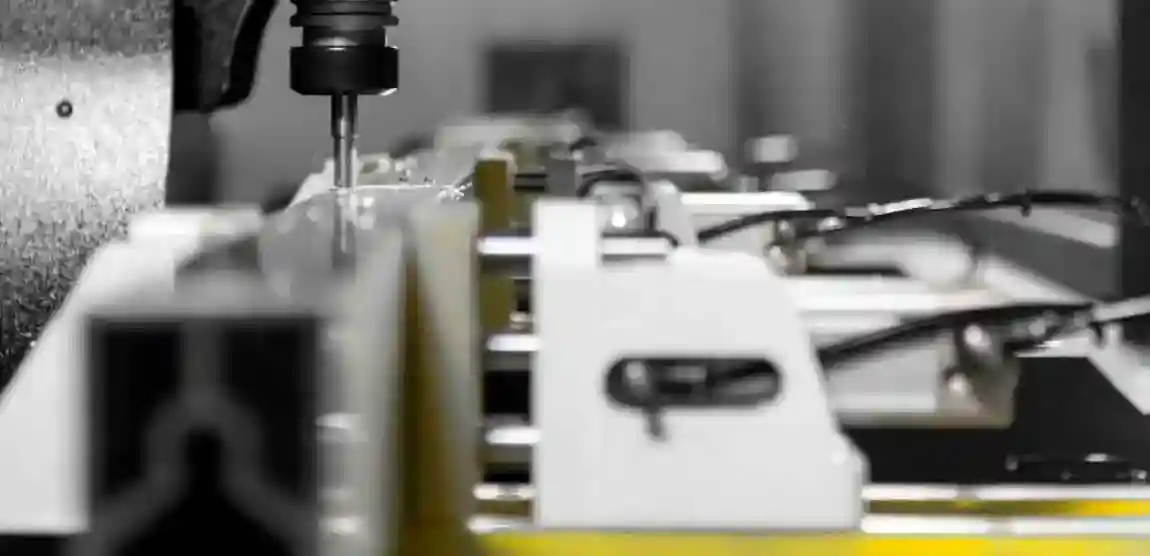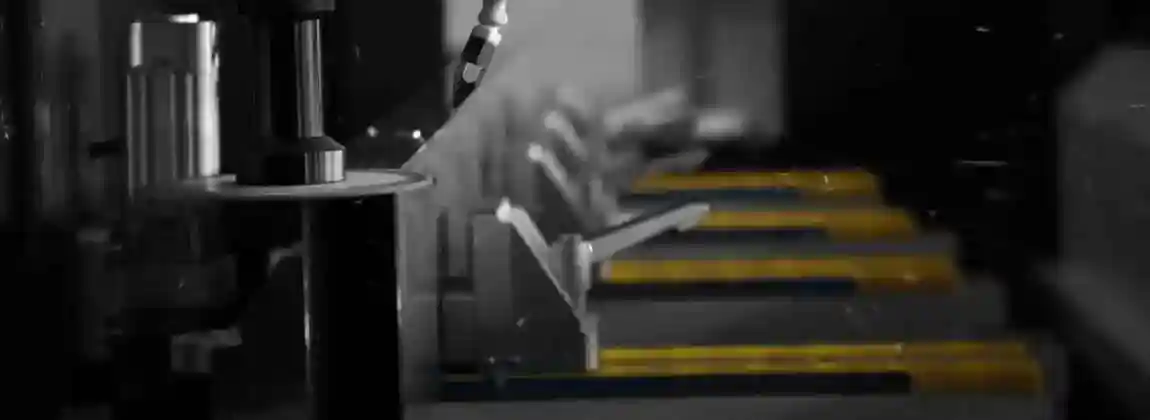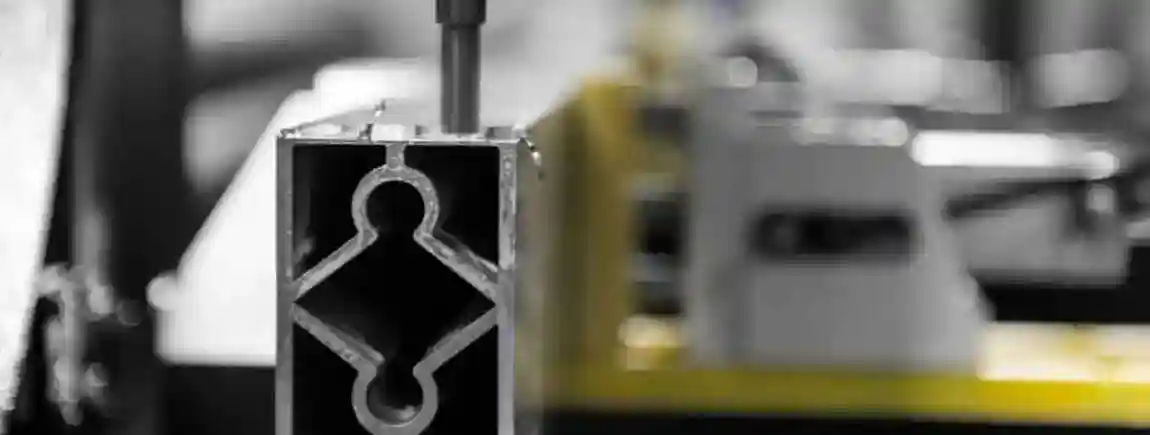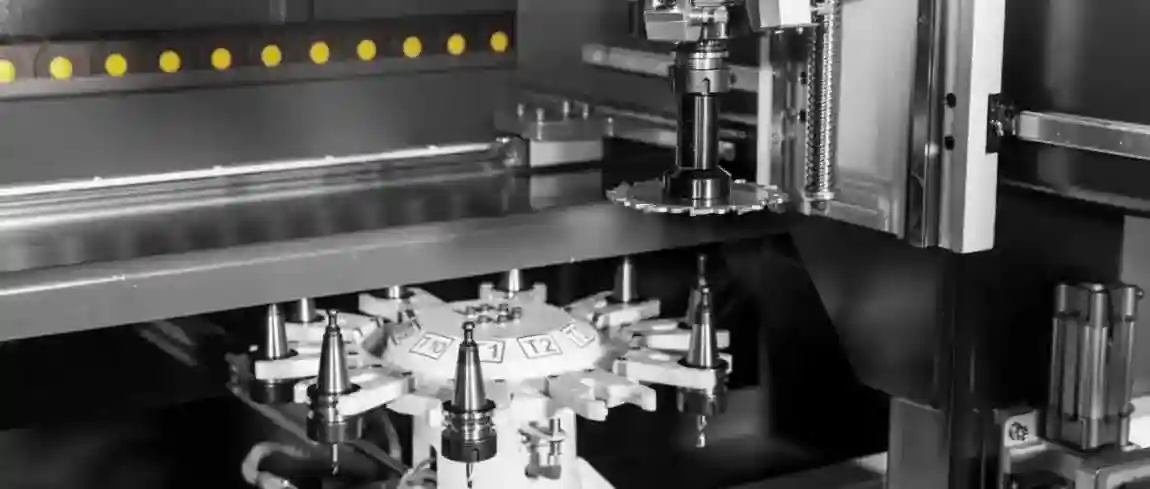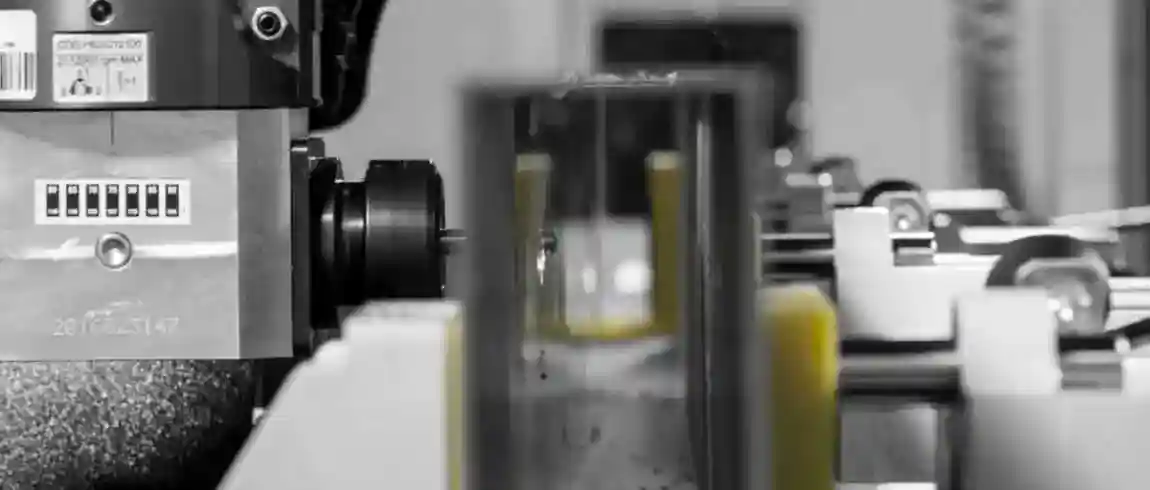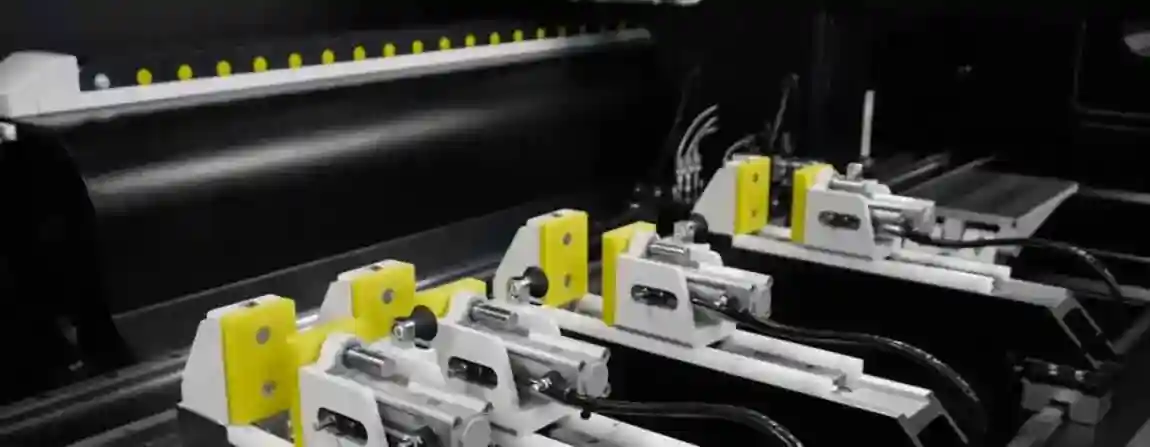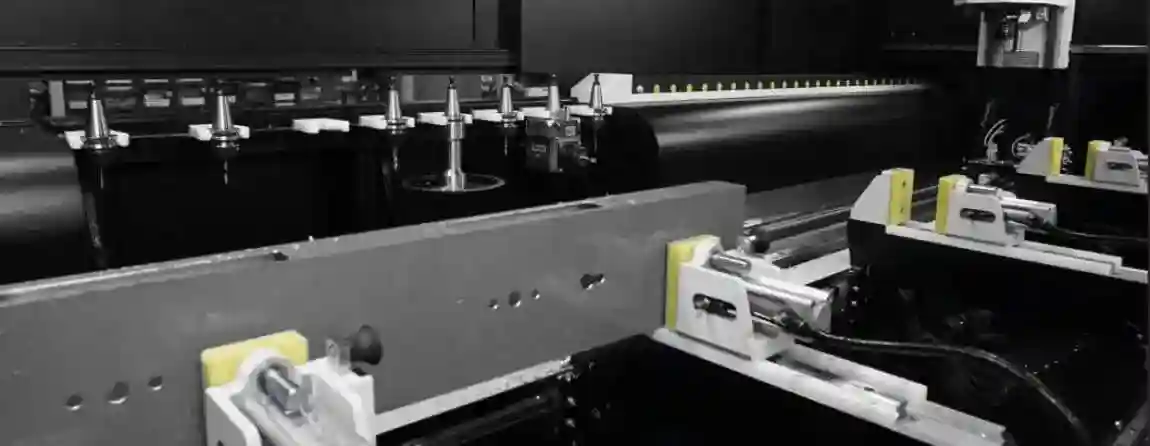-

Company
Product
ALUMINIUM MACHINES
PORTABLE MITER SAWS FOR ALUMINUM
PORTABLE COPY ROUTER MACHINES FOR ALUMINIUM
PORTABLE END MILLING MACHINES FOR ALUMINIUM
AUTOMATIC MITER SAWS FOR ALUMINIUM
COPY ROUTER MACHINES FOR ALUMINIUM
END MILLING MACHINES FOR ALUMINIUM
ALUMINUM CORNER CRIMPING MACHINE
DOUBLE MITRE SAWS FOR ALUMINIUM
AUTOMATIC SAWS FOR ALUMINIUM
BAR PROCESSING CENTERS
MACHINING CENTERS FOR ALUMINIUM COMPOSITE PANELS
NOTCHING SAWS
WEDGE CUTTING SAWS AND NOTCH CUTTING SAWS
MITER SAWS FOR ALUMINIUM
PVC PLASTIC MACHINES
PORTABLE MITER SAWS FOR PLASTIC
PORTABLE COPY ROUTER MACHINES FOR PLASTIC
PORTABLE END MILLING MACHINES FOR PLASTIC
MITER SAWS FOR PLASTIC
COPY ROUTERS FOR PLASTIC
END MILLING MACHINES FOR PLASTIC
WELDING MACHINES FOR PLASTIC
CORNER CLEANING MACHINES FOR PLASTIC PROFILES
DOUBLE MITRE SAWS FOR PLASTIC
BAR PROCESSING CENTERS
GLAZING BEAD SAWS
AUTOMATIC MITRE SAWS FOR PLASTIC
METAL MACHINES
MANUAL METAL SHEET BENDING MACHINE
MANUAL BENDING MACHINES
HYDRAULIC BENDING MACHINES
NON MANDREL BENDERS
PLATE BENDING MACHINES
BORDERING AND TRIMMING MACHINES
HORIZONTAL PRESSES
BELT GRINDING MACHINES
PIPE NOTCHING MACHINES
PIPE POLISHING MACHINES
LASER CUTTING MACHINES
PRESS BRAKES
VERTICAL TURNING CENTERS
MACHINING CENTERS
WOOD MACHINES
GLASS MACHINES
ROBOTICS SPECIAL MACHINERY
Service
Blog
Contact
Blog
- Home
- Blog
- PVC WINDOW MACHINE
- PVC PROFILE WELDING MACHINE
PVC PROFILE WELDING MACHINE

PVC Profile Welding Machine: Technology, Precision, and the Future of Window Manufacturing
The PVC profile welding machine is the heart of modern plastic window and door production. Without it, precise, durable, and aesthetically perfect joints between PVC profiles would not be possible. Combining thermal welding technology, CNC control, and industrial automation, it ensures that window and door frames are permanently sealed, dimensionally accurate, and visually flawless.
This comprehensive technical article provides an in-depth exploration of all key aspects of the PVC profile welding machine – from technical operation and structure to industry applications, quality management, CE certification, investment analysis, and future developments.
With our many years of experience gained from numerous customer projects, we can ensure that inspections are always carried out with the utmost care, precision, and CE-compliant safety. This philosophy defines Evomatec’s approach to engineering – combining precision with innovation to guarantee consistent quality and reliability.
The Importance of the PVC Profile Welding Machine in Modern Plastic Processing
PVC has become the preferred material in modern window and door construction. Its excellent dimensional stability, weather resistance, and thermal insulation make it ideal for durable, energy-efficient building components. However, only the PVC profile welding machine transforms individual profile bars into a sealed, rigid frame system.
The machine enables the thermal fusion of profile ends, creating a strong, airtight, and long-lasting joint. This not only increases mechanical strength but also reduces energy loss through window and door frames.
Evomatec specializes in the development of precision-engineered welding systems designed to meet industrial standards and full CE certification.
Historical Development of PVC Profile Welding Technology
From Manual Processing to CNC Automation
The origins of PVC profile welding go back to the 1960s, when plastic window manufacturing first began. Early machines worked semi-automatically: operators manually positioned profiles, inserted the heating plate, and pressed the parts together once the required temperature was reached.
By the 1980s, hydraulic and pneumatic welding systems had emerged, enabling consistent pressure and temperature control for the first time.
The 1990s marked the next revolution: CNC technology allowed precise control of welding parameters, automatic alignment of profiles, and perfectly repeatable results.
Today’s systems feature digital controls, integrated sensors, process logging, and Industry 4.0 connectivity.
Evomatec has accompanied this technological evolution closely and continues to set standards for quality, efficiency, and CE-compliant safety.
Technical Principles and Functionality of the PVC Profile Welding Machine
The welding process is based on thermal fusion – melting and joining the surfaces of PVC profiles under controlled temperature and pressure.
Step-by-Step Welding Process
-
Positioning and Clamping
The cut profiles are precisely aligned and securely fixed. -
Heating
A Teflon-coated heating plate is inserted between the profiles and heated to approximately 230–250 °C, softening the contact surfaces. -
Joining
The heating plate is withdrawn automatically, and the profiles are pressed together under a defined pressure. -
Cooling
The joined profiles remain under pressure while the material cools and solidifies. -
Removal
The welded frame section is released and transferred for further processing.
Key Welding Parameters
-
Temperature: 230–260 °C
-
Pressure: depends on profile geometry and wall thickness
-
Heating time: 20–60 seconds
-
Cooling time: 30–90 seconds
Modern machines automatically regulate these parameters using digital sensors.
Evomatec employs precision sensor technology to ensure consistent parameter control – delivering maximum process safety and CE-certified welding quality.
Structure and Main Components of a PVC Profile Welding Machine
A modern PVC profile welding machine typically consists of the following components:
-
Machine frame: heavy-duty steel construction for rigidity and stability
-
Heating unit: Teflon-coated electric plate with temperature control
-
Clamping and pressing system: pneumatic or hydraulic operation
-
Control unit: CNC or PLC system for automated parameter control
-
Safety components: light barriers, safety covers, CE-compliant emergency stops
-
Cooling system: accelerates solidification and stabilizes the joint
All Evomatec machines are designed and tested according to CE standards. Our inspection procedures draw on decades of experience to guarantee maximum operational safety and consistency.
Types of PVC Profile Welding Machines
Single-head welding machine
Ideal for small-scale production or special profiles; allows precise manual welding operations.
Double-head welding machine
Enables simultaneous welding of two corners, increasing efficiency and productivity.
Four-head welding machine
Standard in industrial-scale production; welds all four corners of a frame in one operation.
CNC-controlled welding lines
Fully automated systems featuring profile feeding, temperature management, and integration into factory control networks.
Seamless welding machines
The latest generation of technology producing invisible joints for high-end, design-oriented applications.
Evomatec integrates all these technologies into modular systems tailored to each customer’s production requirements – always in full compliance with CE and quality standards.
Application Areas of the PVC Profile Welding Machine
PVC profile welding machines are used in a wide range of industries, including:
-
Window and door manufacturing: frame and sash welding
-
Façade systems: production of weather-resistant structural profiles
-
Industrial applications: assembly of PVC structures and ducts
-
Furniture and interior design: decorative frame production
-
Construction industry: fabrication of roller shutter, ventilation, and cover profiles
Evomatec has implemented numerous industry-specific projects. Our extensive expertise allows us to adapt every machine to the customer’s production environment while ensuring CE-certified safety and precision.
Advantages of the PVC Profile Welding Machine
-
Outstanding dimensional accuracy and repeatability
-
Strong, airtight, and long-lasting joints
-
Fast cycle times with high productivity
-
Fully automated control with easy operation
-
Minimal material waste and no adhesives required
-
Energy-efficient performance
-
CE-certified safety and operator protection
Every Evomatec machine combines efficiency with uncompromising quality assurance. Each unit is individually tested and CE-certified before delivery.
Challenges and Considerations
-
Initial investment: CNC systems require higher upfront cost
-
Regular maintenance: heating plates and clamps must be kept clean and calibrated
-
Operator training: proper parameter and safety knowledge are essential
However, these challenges are outweighed by long-term benefits such as durability, low operating costs, and high-quality results.
Quality Management and CE Certification
Every PVC profile welding machine undergoes rigorous testing and CE inspection, including:
-
Temperature and pressure verification
-
Weld strength and airtightness testing
-
Full safety inspection
-
Documentation in compliance with EU Machinery Directive
Evomatec uses advanced metrology for inspections. With our extensive project experience, we ensure that every machine meets CE standards and is delivered fully certified and production-ready.
Economic Efficiency and Investment Analysis
Purchasing a PVC profile welding machine is a strategic investment in long-term productivity. Benefits include:
-
Reduced production time
-
Minimal scrap and waste
-
Lower energy costs
-
Long service life due to robust construction
In continuous industrial operation, the investment typically pays off within a few years.
Evomatec provides consulting and engineering support to ensure that each machine is perfectly matched to production volume, material properties, and performance requirements.
Future Perspectives of PVC Profile Welding Technology
Digitalization and Connectivity
Modern machines feature real-time data monitoring, cloud connectivity, and process optimization.
Artificial Intelligence
AI-based systems automatically adjust temperature, pressure, and timing to match material conditions.
Sustainability
New heating technologies reduce energy consumption and CO₂ emissions.
Seamless and Design-Oriented Production
Invisible welding seams and smooth surfaces are increasingly in demand in architectural and premium window manufacturing.
Evomatec merges decades of experience with forward-thinking innovation to lead the transformation toward Industry 4.0 – always in compliance with CE and safety standards.
Conclusion
The PVC profile welding machine is indispensable for modern window and door production. It combines precision, efficiency, and durability, forming the backbone of every high-quality manufacturing line.
From small workshops to large-scale factories, it ensures perfectly sealed, stable, and aesthetically flawless joints.
Through our long-standing expertise and consistent quality assurance, we guarantee that every machine and inspection meets CE-certified safety standards. Evomatec stands for innovation, engineering excellence, and reliability in industrial manufacturing.
FAQ – Frequently Asked Questions
1. How does a PVC profile welding machine work?
It heats the profile ends and presses them together under controlled pressure to form a permanent, homogeneous joint.
2. Which materials can be processed?
Mainly PVC, but also other thermoplastics such as ABS or PMMA, depending on the machine type.
3. What are the advantages of CNC-controlled systems?
They enable repeatable results, automatic parameter adjustment, and digital process documentation.
4. How often should the machine be maintained?
Heating plates and clamping systems should be cleaned and calibrated regularly to maintain quality.
5. Why is CE certification important?
It ensures compliance with European safety and quality regulations, guaranteeing operator protection and reliability.
Free consultation available at www.evomatec.com
- PVC profile welding machine
- welding machine for PVC profiles
- PVC profile welding technology
- CNC PVC welding machine
- plastic profile welding machine
- window manufacturing PVC welding machine
- hot plate welding PVC profiles
- seamless PVC welding machine
- thermal profile joining plastic
- CE certified PVC welding machine
- plastic profile welding process
- profile fabrication PVC windows
- industrial PVC profile welding
- automatic PVC profile welding machine
- Industry 4.0 PVC welding technology
 GERMANY
GERMANY ENGLISH
ENGLISH FRANCE
FRANCE SPAIN
SPAIN PORTUGAL
PORTUGAL

